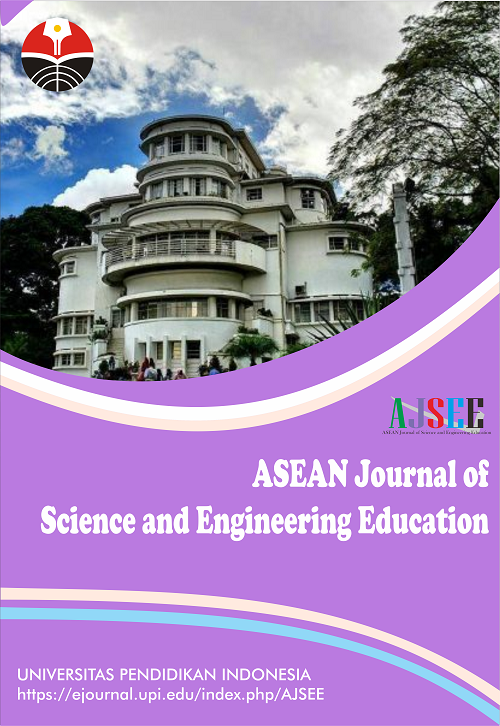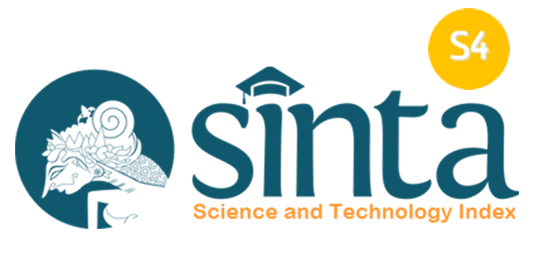Vocational Education Curriculum: Between Vocational Education and Industrial Needs
Abstract
Keywords
Full Text:
PDFReferences
Yahya, M., Iskandar, S., and Sunardi, S. (2017). Technical skills and employability skills of vocational high school students in Indonesia. Journal of Scientific Research and Studies, 4(6), 148-155.
Patmanthara, S., and Hidayat, W. N. (2018). Improving vocational high school student’s digital literacy skill through blended learning model. Journal of Physics: Conference Series 1028(1), 012076.
Pambudi, N. A., and Harjanto, B. (2020). Vocational education in Indonesia: History, development, opportunities, and challenges. Children and Youth Services Review, 115, 105092.
Billett, S. (2003). Vocational curriculum and pedagogy: An activity theory perspective. European Educational Research Journal, 2(1), 6-21.
Retnawati, H., Hadi, S., and Nugraha, A. C. (2016). Vocational high school teachers' difficulties in implementing the assessment in curriculum 2013 in yogyakarta province of indonesia. International Journal of Instruction, 9(1), 33-48.
Vähäsantanen, K., and Eteläpelto, A. (2011). Vocational teachers’ pathways in the course of a curriculum reform. Journal of Curriculum Studies, 43(3), 291-312.
Hodge, S. (2016). Alienating curriculum work in Australian vocational education and training. Critical Studies in Education, 57(2), 143-159.
Wheelahan, L. (2015). Not just skills: What a focus on knowledge means for vocational education. Journal of Curriculum Studies, 47(6), 750-762.
Morris, H. A. (2013). Revisiting quality assurance for technical vocational education and training (TVET) in the caribbean. Caribbean Curriculum, 21, 121-148.
Tran, L. T., and Nyland, C. (2013). Competency-based training, global skills mobility and the teaching of international students in vocational education and training. Journal of Vocational Education and Training, 65(1), 143-157.
Yanming, Y., Minghao, Z., Zhufeng, S., and Zheng, Y. (2017). A study on the development strategies of the basic parts and components industry in China. Strategic Study of Chinese Academy of Engineering, 19(3), 117-124.
Rahdiyanta, D., Nurhadiyanto, D., and Munadi, S. (2019). The effects of situational factors in the implementation of work-based learning model on vocational education in Indonesia. International Journal of Instruction, 12(3), 307-324.
Mian, S. H., Salah, B., Ameen, W., Moiduddin, K., and Alkhalefah, H. (2020). Adapting universities for sustainability education in industry 4.0: Channel of challenges and opportunities. Sustainability, 12(15), 6100.
Oke, A., and Fernandes, F. A. P. (2020). Innovations in teaching and learning: Exploring the perceptions of the education sector on the 4th industrial revolution (4IR). Journal of Open Innovation: Technology, Market, and Complexity, 6(2), 31.
Wardina, U. V., Jalinus, N., and Asnur, L. (2019). Kurikulum pendidikan vokasi pada era revolusi industri 4.0. Jurnal Pendidikan, 20(1), 82-90
Pantić, N., and Wubbels, T. (2010). Teacher competencies as a basis for teacher education–Views of Serbian teachers and teacher educators. Teaching and teacher education, 26(3), 694-703.
Sagita, M., and Khairunnisa, K. (2020). E-Learning for educators in digital era 4.0. Budapest International Research and Critics Institute (BIRCI-Journal): Humanities and Social Sciences, 3(2), 1297-1302.
Suryani, L., & Hamdu, G. (2021). Education for Sustainable Development in Science National Exam Questions of Elementary School. ASEAN Journal of Science and Engineering Education, 1(1), 1-6.
DOI: https://doi.org/10.17509/ajsee.v1i2.33400
Refbacks
- There are currently no refbacks.
Copyright (c) 1970 Universitas Pendidikan Indonesia

This work is licensed under a Creative Commons Attribution-ShareAlike 4.0 International License.













